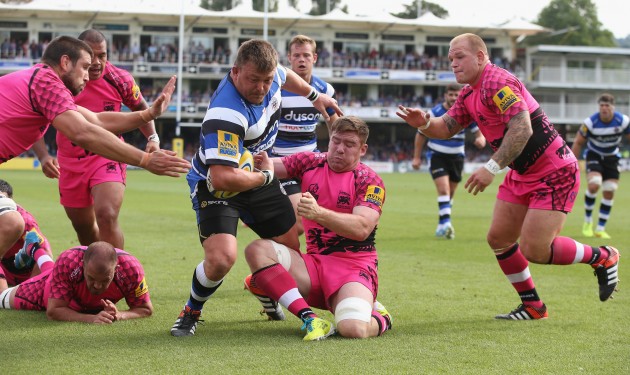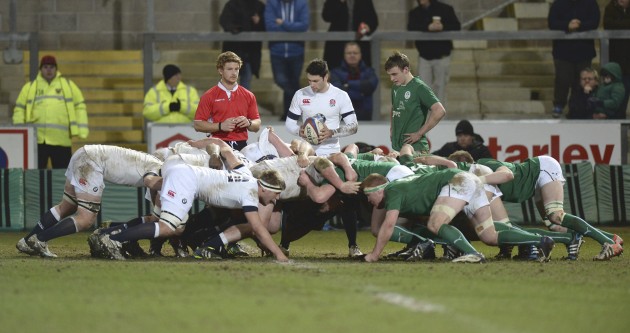FIVE. That’s a number to remember and come back to.
With Premiership Rugby announcing that they will be extending the salary cap to £5.1m plus an additional £400,000 ‘Home Grown Player Credits’ for future seasons, it is being heralded as a move that will keep English stars from seeking pay-days in France and Japan. With another ‘marquee’ spot set to be opened up for players outside of the cap to be signed (but under the proviso that they have not played in England for 12 months to avoid clubs pinching players off each other as well as returning from France), it means that Aviva Premiership clubs could arguably attract some of the biggest players in the game from the southern hemisphere, who may previously have been weighing up a jaunt to Japan or a life in France, post-World Cup. Already there is a nibbling rumour that Australian scrum-half Will Genia is being lined up by Bath, for example.
Of course that is just lingering chatter. All sorts of sexy names can be pulled out at this stage, like car keys from a bowl, but as exhilarating as any 2015-2016 guessing can be there is a long-term effect to consider.
With agreements between unions and professional leagues a dirty subject, particularly after the patience-hammering siege in Wales and the big bods at the Premiership currently nattering with the RFU about when the breakdown of compensation for lost earnings during the Rugby World Cup will start, maybe a directive needs to be tacitly agreed upon. A directive for playing props.
Actually, tightheads. Because for two Premiership weekends in a row, with certain individuals out injured, only five Premiership teams started England-born tightheads. Now if we ignore that England internationals Dan Cole and Kieran Brookes were out and that Cole will be decommissioned until Christmas, then only David Wilson of Bath, Fraser Balmain at Leicester, Oliver Tomaszczyk at Falcons, Kyle Sinckler at Harlequins and Tomas Francis at Exeter started the first two games while flying the flag for England.
Arguably five is a really good number. But you have to look at the performances more deeply. Balmain is probably the uncapped player to continue monitoring, from what we have seen. He has built on last season admirably. However, the recognised names have not had it easy. International Sinckler has not enjoyed a great start to the season on the right-hand of the scrum, with a blurry second half against London Irish and a torrid time against Sarries. He is talented and still learning, so this should be good for him, but he is not menacing so far.
Wilson, as the other international, was taken off by Bath after 35 minutes last week while Francis is in his first season at the top of the pile and Tomaszczyk, previously a one-half warrior, is finally being given the chance to play more rugby.
Now these guys won’t be the English lot for a whole season. Others can and will come in and out. However, if you are thinking two seasons or more down the line, you would hope there are people talking seriously about preserving prop prospects so that five remains a nice steady number at least.
Looseheads have rarely been as hard to find as tightheads. It’s just one of those things in rugby. And there are certainly mighty fine tightheads around. And maybe English powers won’t regularly set up one of their marquee spots for a big No 3 from abroad, like Gloucester did as soon as it was clear their scrum was being treated like wet toilet paper, last season.
Yet you have to prepare for the worst eventuality. In this instance it’s protecting an already endangered species: the England-standard tighthead.
So what about the RFU? Well there is fine work behind the scenes, with former prop Ian Peel rightly being lauded for work he has done to nurture young props in the age grades. Graham Rowntree has an eye for talent and academy characters have undoubtedly been ear-marked from an early stage.
However, rugby – and we are always beaten around the head with – is an industry built on results. As noble as it would be to see hardy young pillars like Balmain working away in every team, you will not be getting every director of rugby agreeing it’s brilliant. You can ring-fence positions in academies if you’d like, but it is not a Premiership requirement to have an academy anyway and it doesn’t work dictating selections by nationality in certain positions for first teams.
Under the new salary cap set-up you gain credits to spend up to £400,000 more based on what you have in your young ranks, so having England-qualified guys is incentivised. You also get dosh if you have up to 16 England-qualified players in your match-day squad. But how that is broken down is up to you.
So two potential evils are there: forcing teams to pick English tightheads every week is a laughably bad idea; and a raft of South African and Kiwi No 3s doesn’t suit England, long-term, either. Legislation seems illogical, and you cannot make a commodity of common sense.
Consider this, then, a light warning. Good tightheads are hard to come by and as brilliant as some clubs are at bringing on players and as fine a turnout as there is in the Championship when players are sent down or grow there anyway, the powers that be and those at HQ must be vigilant.
Five tightheads who can play for England should be a bare minimum for every Premiership weekend. A nice, safe number now and one to be preserved.







